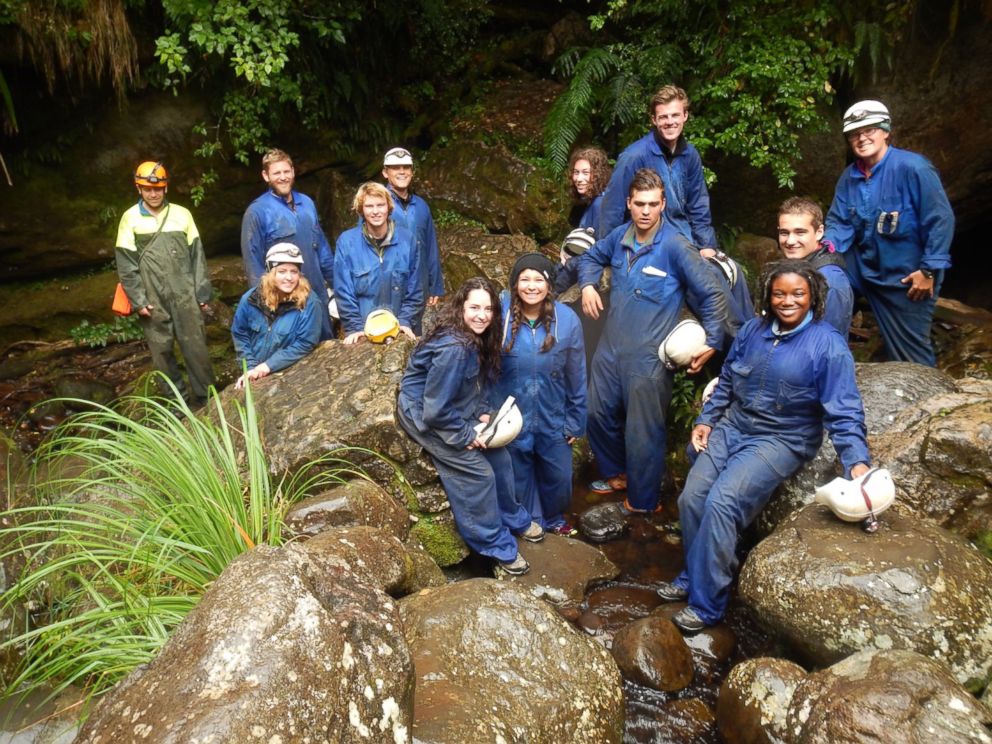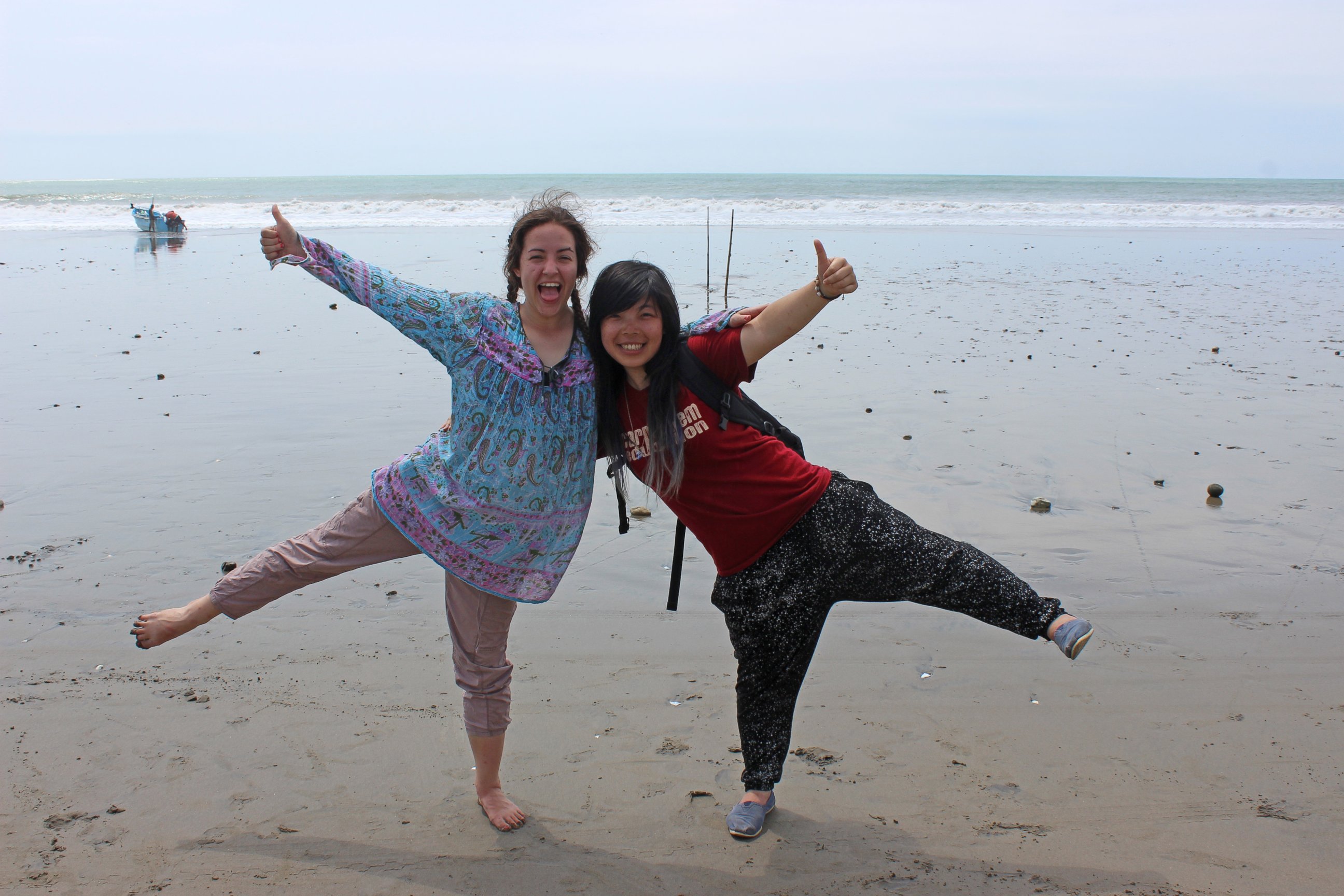Questions to Ask Yourself Before Taking 'Gap Year' Between HS and College
There are pros and cons to the potentially life-changing experience.
— -- First daughter Malia Obama has finally made her decision to attend Harvard University, but not until the fall of 2017. Between then and now, the 17-year-old will be taking a so-called gap year, an option that appears to be as popular as ever among U.S. high school students, even those with limited means.
There’re no firm numbers on U.S. high school graduates who put off college for a year, but the American Gap Association has seen a 23 percent growth in enrollment for gap-year programs in the past year, the organization says.
While the idea of going abroad for service work or even non-academic experiential learning closer to home might turn off some parents, there’s something to be said for building homes in Thailand or teaching children English in Spain, experts say.
But there are also some key questions for families to keep in mind as students explore the possibility of taking off a year between high school and college.
Here are some of them:
How much will it cost?
“I get a lot of parents calling me saying they saved for four years of college, not five,” executive director Ethan Knight of the American Gap Association told ABC News.
But while these programs, not to be confused with studying abroad, can cost anywhere from $1,100 to $20,000, not including airfare, Knight said there are several scholarships and financial packages that can help relieve some of the financial burden.
Some colleges also offer credit toward students’ gap years to keep them on track with their education and save money on classes, he added.
Grace Milstein, 21, was able to afford a gap year to Israel from September 2012 to June 2013 with subsidies and grants that went toward her $20,000 program tag. Even though it was a big investment, she said of the time that included helping children with Down syndrome, it was “extremely beneficial,” and helped her focus more on her classes when she began attending New York’s Barnard College in fall 2013.
Knight said the financial strain can actually help students learn more about budgeting, adding “it was one of the highest aspects students recorded learning from their experiences.”

What if colleges make it difficult for students to take a gap year?
Not all schools will allow students to defer their acceptance for a year, with some making students re-apply the next year when they will attend school. But more colleges are creating programs that work alongside gap years, according to Knight.
Harvard University encourages students to take gap years and has between 80 and 110 students defer each year, the school says. So that was not a problem for Malia Obama, whatever she chooses to do.

Will students want to attend college when they come back?
“Parents fear that their children won’t want to go to college after being abroad for a year,” Knight said, adding that 90 percent of students who take a gap year go on to college.
There may be other less-obvious benefits, as well.
C. Hansell Bourdon, executive director of Carpe Mundi, a nonprofit that helps first-generation and low-income students take gap years, said, “Data is showing that it takes a student about six years to finish college. If you take a gap year, you actually finish sooner than the students that just go straight into school” because they usually have a clearer idea of their goals and plans after spending time abroad.
“In a way it can save you money,” she said.

Will it be a life-changing experience?
“When you take a gap year it makes you realize there are other world views and perspectives,” Chris Mathy, 22, a senior at Stanford, told ABC News. “When you realize there’s this other perspective, it makes you question your own perspective.”
It can even be more of a life-changing experience for men, who typically make up only 30 percent of the student population that takes a gap year, Knight, of the American Gap Association, said.
“They develop more in that period of time than women do,” he said.
Mathy agrees that he grew a lot as a person while taking a gap year in a small town in France, where he was the only man in the program. “I didn’t have American guys that I could hang out with, so I felt the need to go out of my way to meet more people,” he said.
Milstein, the Barnard College junior, agreed that “living in another country does challenge you to step up and learn another culture. As long as you’re doing something out of your comfort zone, it will be enriching.”
Milstein, who also took non-intensive elective courses in Israel based around her interests, knew she could not handle going to a competitive four-year college right after high school. “It was overwhelming,” she said.
But Knight stressed that not taking a gap year shouldn’t be seen as a disadvantage. “If a student is genuinely excited for college, they should go to college,” he said.
But, he added, college is “too much time and investment to go in if you don’t have a sense of purpose in it. College doesn’t immediately translate to getting a job.”
In any scenario, whether college or the gap year, adversity is what will lead to the greatest change and development in a person, Knight said.
“Pushing comfort zones is what makes it successful,” he added




